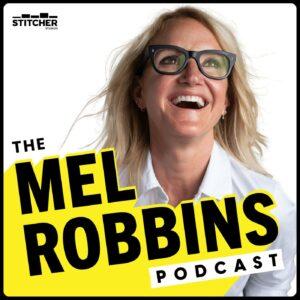
In this episode of the “Science vs” podcast, Dr. Gül Dölen, a pioneer and world leader in psychedelics research at Johns Hopkins University School of Medicine, discusses her groundbreaking work on rethinking psychedelics and their potential applications in various brain functions. She explores the concept of critical periods, the neurobiology of theory of mind, and the fascinating effects of psychedelics on octopuses. Dr. Dölen also delves into the potential use of psychedelics in autism treatment, stroke recovery, and allergies. Join us as we explore the master key of metaplasticity and the exciting possibilities that psychedelics offer.
Dr. Gül Dölen’s pioneering research at Johns Hopkins University School of Medicine explores the potential of psychedelics in reopening critical periods in the brain. By discovering a novel critical period for social reward learning that can be reopened with psychedelic drugs, Dr. Dölen has formulated the hypothesis that psychedelics may serve as the master key for unlocking critical periods across various brain functions. This groundbreaking understanding of psychedelics expands the scope of disorders that might benefit from adjunct therapy with psychedelics.
Theory of mind, the neurobiological process of anticipating what someone else might be thinking and seeing the world from their point of view, is a crucial aspect of human cognition. People with autism tend to struggle with theory of mind, while psychopaths often exhibit better-than-average theory of mind skills, using them to manipulate others. Dr. Dölen’s research explores the hypothesis that having theory of mind is necessary for consciousness and a full sense of self-awareness. By studying diseases where theory of mind is impaired, such as autism, researchers can gain insights into the requirement of theory of mind for consciousness.
Autism, a complex disorder with a wide range of symptoms, can be thought of as an impairment in theory of mind. Fragile X, the most common cause of autism, is caused by a mutation in the FMR1 gene. While human clinical trials for autism treatment have faced challenges, including disappointing results, Dr. Dölen suggests that pairing psychedelic intervention with interventions that restore biochemical balance may reopen relevant critical periods in autism treatment. By targeting specific subtypes of autism, such as fragile X, psychedelics may offer new possibilities for therapeutic interventions.
Stroke recovery often involves a short window of time where physical therapy can have the maximum effect on motor function recovery. Dr. Dölen and her collaborators are exploring the potential of psychedelics in reopening critical periods for motor recovery after a stroke. By giving another critical period, such as through the use of psychedelics, researchers aim to maximize the benefits of physical therapy. Additionally, pairing psychedelics with non-goal directed play-like behavior in virtual reality systems may enhance motor rehabilitation.
Allergies, which may have a higher prevalence in countries with fewer parasitic infections, involve learned associations between triggers and immune responses. Reopening the critical period for learned threats could help unlearn these associations and potentially alleviate allergic reactions. Psychedelics, with their anti-inflammatory properties, may offer benefits in allergy treatment. However, further research is needed to explore the potential of psychedelics in this area.
Dr. Gül Dölen’s groundbreaking research on psychedelics and their potential applications in various brain functions opens up exciting possibilities for understanding and treating neurological disorders. By exploring the concept of critical periods, the neurobiology of theory of mind, and the effects of psychedelics on octopuses, Dr. Dölen sheds light on the master key of metaplasticity. From autism treatment to stroke recovery and allergy management, psychedelics offer a new avenue for therapeutic interventions. As research continues to uncover the mechanisms and potential of psychedelics, the future of neuroscience holds promise for unlocking critical periods and transforming brain function.